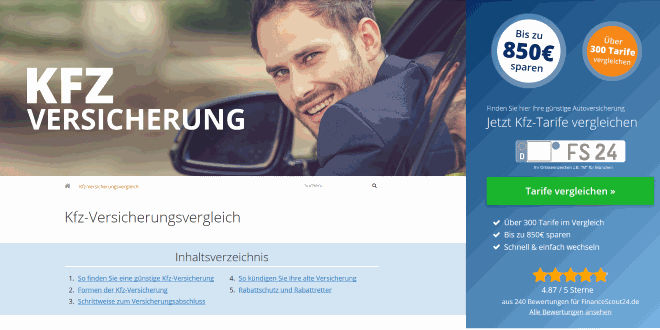English-Speaking Truck Drivers: Exploring Prospects in Germany
Discover the potential for English-speaking individuals in Germany's trucking industry. From urban deliveries to international routes, various roles may suit different preferences and skills. Explore typical job aspects, qualifications, and industry trends to gauge if this career path aligns with your goals. Note that specific job availability and compensation can vary widely.

Navigating the German Trucking Landscape as an English Speaker
Diverse Roles in German Trucking
The trucking industry in Germany offers a spectrum of positions beyond basic cargo transport. Urban delivery drivers typically manage shorter routes within cities or regions, often returning home daily and interacting directly with customers. Regional drivers cover wider areas within Germany, while long-haul operators may traverse multiple European countries, sometimes staying on the road for extended periods.
Specialized sectors include hazardous materials transport, temperature-controlled logistics, and oversized load handling. These niches often require additional training but may offer higher compensation. Container transport between ports and distribution centers is particularly significant in northern Germany, with major shipping hubs like Hamburg and Bremen.
The Value of English in German Logistics
Despite Germany’s reputation for language barriers, the logistics sector has become increasingly international. Many transportation companies operate across European borders, making English a valuable skill. Dispatch centers, especially those managing international routes, often use English as a working language to coordinate with drivers and partners from various countries.
While basic German is beneficial for daily interactions, some companies provide translation assistance for essential documents and employ bilingual dispatchers to bridge communication gaps. Technological advancements have also eased language barriers, with translation apps and multilingual GPS systems readily available. Some larger logistics firms may seek English speakers for routes connecting Germany with English-speaking countries or for serving international clients who prefer English communication.
Licensing and Qualifications
Professional driving in Germany requires appropriate licensing, starting with a Class C (for vehicles over 3.5 tons) or Class CE license (for truck and trailer combinations). EU driver’s licenses are recognized in Germany, while non-EU license holders typically need to convert their licenses through a process that may include written and practical exams.
Professional drivers must also obtain a Driver Qualification Card (Berufskraftfahrer-Qualifikation), demonstrating completion of 140 hours of professional driver training. This certification covers safety regulations, efficient driving techniques, and legal requirements. Specialized transport, such as dangerous goods, requires additional certifications like ADR (European Agreement concerning the International Carriage of Dangerous Goods by Road).
Most employers require a clean driving record, a minimum age of 21, and a health certificate confirming fitness for professional driving. Criminal background checks are standard in the industry.
Industry Demand and Economic Factors
Germany’s position as Europe’s largest economy and its central location make it a crucial transportation hub. With approximately 3.7 million registered trucks, the logistics sector faces ongoing driver shortages. This shortage can create opportunities for qualified drivers, though specific job availability can fluctuate.
The e-commerce boom has increased demand for delivery services, with Germany experiencing significant growth in online shopping. Additionally, Germany’s manufacturing industry relies heavily on just-in-time delivery systems, necessitating consistent and reliable transportation networks. The essential nature of logistics often provides some stability compared to other sectors, even during economic downturns.
Environmental initiatives are transforming rather than diminishing the industry, potentially creating new opportunities in green logistics and specialized transport roles that may require additional skills and certifications.
Work Schedules and Road Conditions
German trucking schedules adhere to strict national and EU regulations. Generally, daily driving time is limited to 9 hours (extendable to 10 hours twice weekly), with a maximum of 56 hours weekly and 90 hours bi-weekly. Mandatory rest periods include 45-minute breaks after 4.5 hours of driving and daily rest periods of at least 11 consecutive hours (reducible to 9 hours three times between weekly rest periods).
Germany boasts an extensive autobahn network spanning over 13,000 kilometers. While some sections have no speed limits, commercial vehicles are restricted to 80 km/h. Urban deliveries present unique challenges, with narrow streets and strict delivery window restrictions in many city centers.
Weather conditions vary significantly by season, with potential for snow and ice during winter months, particularly in southern and eastern regions. Summer brings increased holiday traffic, especially on routes to popular vacation destinations. Germany’s central position means drivers frequently encounter border crossings, though EU membership simplifies these transitions considerably.
Typical working hours range from 40-48 hours weekly. Compensation structures can vary, including hourly wages, per-kilometer rates, or monthly salaries. While specific figures can fluctuate, entry-level positions in the industry generally offer lower compensation compared to more experienced or specialized roles.
Conclusion
For English speakers residing in Germany, the trucking industry may present career opportunities with potentially lower language barriers compared to many other professions. The structured nature of the work can offer stability and predictable schedules. While some basic German proficiency is beneficial, many companies have adapted to accommodate international drivers.
With proper licensing and qualifications, English-speaking drivers can potentially find opportunities in Germany’s logistics network. However, it’s crucial to research current market conditions, specific company requirements, and regional variations before pursuing this career path. The unique perspective of experiencing the country from behind the wheel could be an added benefit for those who enjoy travel and have an interest in the transportation sector.




